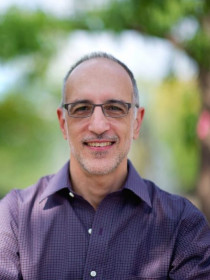
Martin Gilens
Connect with Martin
About Martin
Martin Gilens is Chair of the Department of Public Policy and Professor of Public Policy, Political Science, and Social Welfare at UCLA. His research examines representation, public opinion, and mass media, especially in relation to inequality and public policy. Professor Gilens is the author of Affluence & Influence: Economic Inequality and Political Power in America, and Why Americans Hate Welfare: Race, Media and the Politics of Antipoverty Policy, and coauthor (with Benjamin I. Page) of Democracy in America?: What Has Gone Wrong and What We Can Do about It.
Contributions
Who Gets What They Want from Government?
In the News
Publications
Examines the disproportionate influence of affluent Americans over government policy, showing that the ability of the well-off to influence political decision-making has grown over time, but that impending elections and strong partisan competition in Congress can help produce policies that are more broadly responsive to the public as a whole.